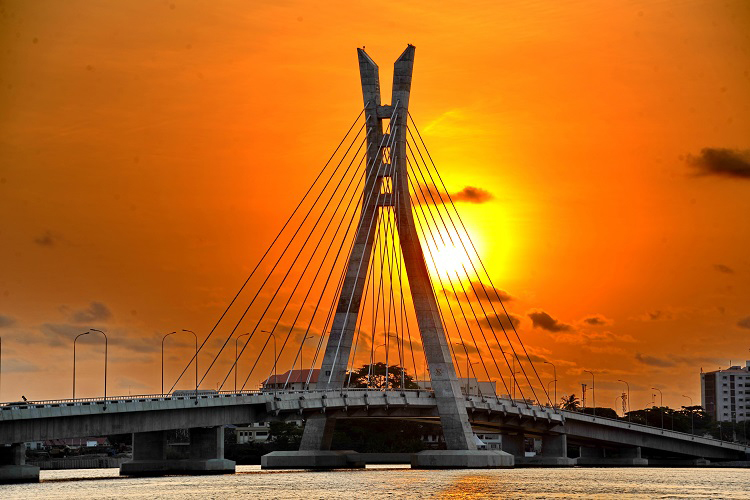Lagos, Nigeria’s Urban Giant
Every great city deserves to have literature dedicated to it. And Lagos, the disorganised, loud, relentless and frenzied heart of Nigeria, has 30-million stories to inspire. Tales of hard-charging entrepreneurs, dippy drivers who risk the clogged streets, ogas and hawkers abound.
Lagos is a city of the imagination. A city of unexpected loves, hope, joy, tragic poverty and impossible challenges. A youthful city. A city of art, culture and music. A city of young hipsters facing age-old questions of identity.
This prodigious sprawl is the largest urban centre in Nigeria, a country described by one its greatest sons, Chinua Achebe, as disorderly, corrupt, insensitive and inefficient. Lagos is also a city where you walk out the door and become mixed up in something.
The nameless hero of Teju Cole’s novel Every Day is for the Thief wanders the Lagos streets bumping into traders and thugs. Cole’s Lagos is a “creative, malevolent, ambiguous” city of jazz clubs and women reading on creaking buses and busy men typing advance-fee scam emails in internet cafes.

A street scene on Lagos Island. (Image: Nick M, CC BY 2.0, via Flickr)
Lagos has grown to accommodate the needs and tastes of diplomats and the business people flocking to the city to make oil deals. Most of the high-end restaurants cater to their cosmopolitan tastes. But if you want a real taste of Lagos, try the city’s bukkas (street stalls) for authentic Nigerian flavours.
Here you will find ewan agonyin and agege soft warm bread with a paste of mashed boiled beans and pepper sauce. Or try bankolemoh rice (a stew of peppers and tomato) and obalende suya (beef or chicken grilled with dry peppers and fresh onions and tomatoes).
Lagos is Africa’s largest city, where more than 500 languages are spoken. And even if you can’t understand the languages, it’s a city of chaotic energy and buzzing nightlife.

The Lekki-Ikoyi Link Bridge is a 1.36-kilometre cable-stayed bridge connecting the Lekki and Ikoyi districts of Lagos. (Image: Julius Berger)
This where Afrobeat sprouted and gave the world Fela Kuti. The music has evolved, so the Afrobeat soundtrack of today’s Lagos is spliced with R&B, hip-hop rhythms and the pidgin of its streets. The place to hear the sounds of the city is the New Afrika Shrine. A live music venue started by Fela and run by his musician sons Femi and Seun, this is the home of the annual Felabration Festival.
Kuti’s own home, down a potholed road that seceded from Lagos in the 1970s, is the best tourist attraction in the city. The three-storey Kalakuta commune celebrates the man’s revolutionary life and the melange of Yoruba music and jazz infused with anti-government messages that made him a target for harassment, beatings and imprisonment.
Lagos (like Nigeria) is, as Chinua Achebe once wrote, a “paradise for adventurers and pirates”. It is the city that perfected the art of Owambe, shutting down streets in the name of a party.

Somolu in the north of Lagos is one of the sprawling city’s more impoverished administrative areas. (Image: Goya Bauwens, CC BY-NC 2.0, via Flickr)
TOP IMAGE: Victoria Island in Lagos is the commercial centre of this money-minded city of 20-million souls. (Image: OpenUpEd, CC BY 2.0, via Flickr)
- Words: Sulaiman Philip
- Editing, photo research and captions: Mary Alexander


